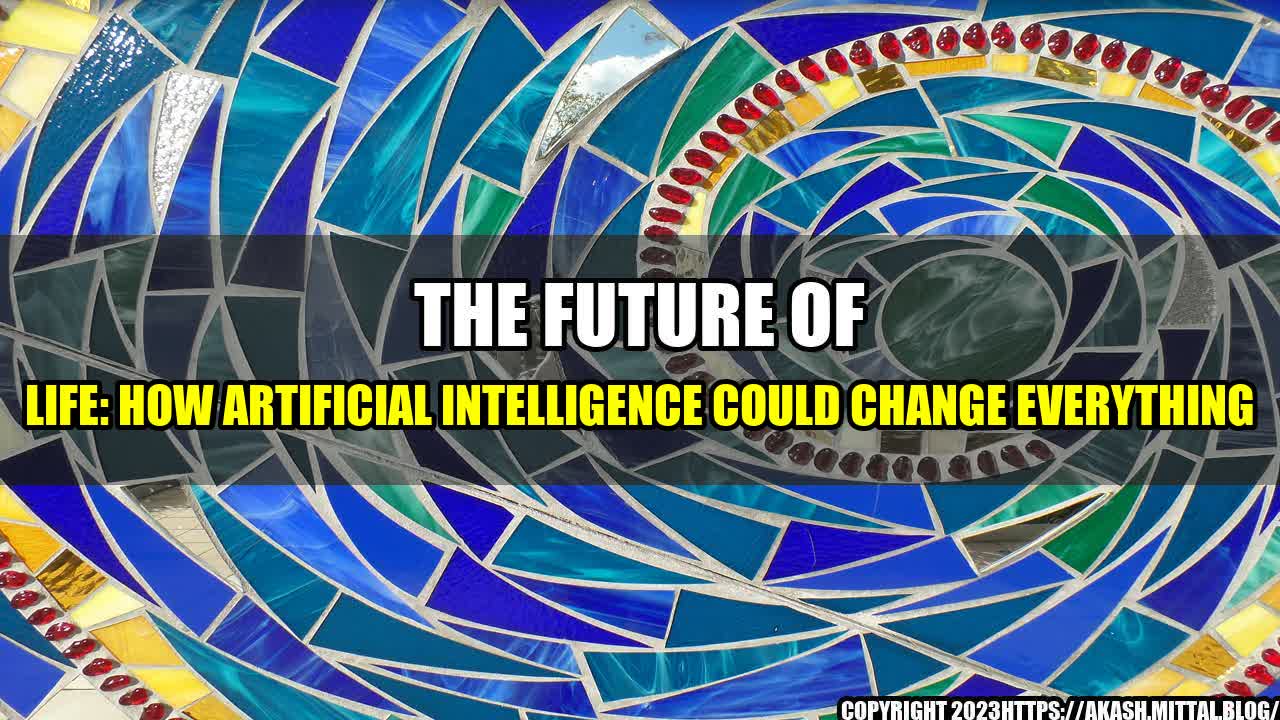The Rise of Artificial Intelligence: An Interesting Story
In 2015, a group of researchers at Google built an artificial intelligence system that learned to play the game of Go at an expert level. This was a major achievement, as Go is an ancient game that has more possible combinations of moves than there are atoms in the universe.
What made this system even more amazing was that it did not rely on traditional programming techniques. Instead, it used a process called "deep learning" to analyze millions of past games and identify patterns that could be used to make better moves.
The implications of this breakthrough were clear: if an AI system could master a complex game like Go, it could potentially excel at any task that involves pattern recognition, decision-making, and strategy. And as more and more companies invest in AI research, the future of life as we know it could be drastically altered.
The Impact of Artificial Intelligence on Society
The rise of AI has been met with both excitement and concern. On one hand, there is the potential for AI to revolutionize many industries and improve our quality of life. For example, AI could help us tackle climate change by optimizing renewable energy systems, or it could improve healthcare by developing more accurate diagnoses and treatments.
On the other hand, there are concerns about the impact of AI on the job market, privacy, and even the nature of humanity itself. As AI systems become more advanced, it is possible that they could replace human workers in many industries, leading to widespread unemployment and economic disruption. Additionally, there are concerns about the misuse of AI by authoritarian regimes or other malicious actors.
AI's Impact
While the potential impact of AI is still largely speculative, there are already some quantifiable examples of how AI is changing our world:
- Smart assistant technology: Companies like Amazon, Google, and Apple have developed AI-powered digital assistants that can help us with everything from scheduling appointments to ordering groceries. These assistants learn our preferences and can make recommendations based on our habits.
- Self-driving cars: Tesla and other automakers are developing cars that use AI to navigate roads and avoid accidents. Self-driving cars have the potential to reduce traffic fatalities and make transportation more efficient.
- Cybersecurity: AI is being used to detect and prevent cyber attacks, which are becoming more sophisticated and frequent. AI-powered cybersecurity systems can detect patterns and anomalies that human analysts might miss.
Practical Tips for Navigating the Future of AI
As AI continues to evolve, it is important for individuals and organizations to take steps to prepare for its impact. Here are a few practical tips:
- Stay informed: Keep up-to-date on the latest advances in AI and their potential impact on your industry or area of interest. Attend conferences, read industry journals, and participate in online forums.
- Develop new skills: As AI systems become more prevalent, many jobs will require new skills or knowledge. Consider taking courses in data science, machine learning, or programming to stay competitive.
- Advocate for responsible use of AI: If you work in an industry that is developing or using AI, speak out about the need for responsible and ethical practices. Encourage your organization to prioritize transparency, accountability, and fairness.
Conclusion: The Future of Life
As we have seen, artificial intelligence has the potential to impact every aspect of our lives, from the way we work to the way we stay healthy. The key to navigating this future is to stay informed, develop new skills, and advocate for responsible practices.
- AI is here to stay: There is no doubt that AI will continue to evolve and impact our lives. Rather than fearing this, we should embrace the opportunities it presents and work to guide its development in responsible ways.
- Collaboration is key: The future of AI will require collaboration among individuals, organizations, and governments. By working together, we can ensure that the benefits of AI are enjoyed by all.
- We must remain vigilant: As AI becomes more powerful, we must remain vigilant to the potential risks and challenges it presents. This means advocating for ethical practices, investing in research on the impact of AI, and creating policies and regulations that protect individuals and society as a whole.

Curated by Team Akash.Mittal.Blog
Share on Twitter Share on LinkedIn